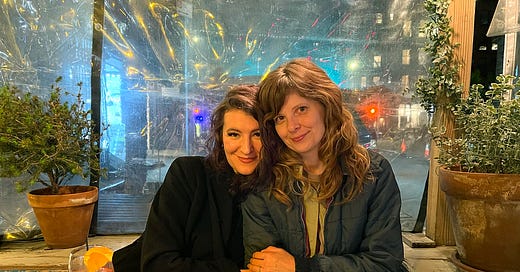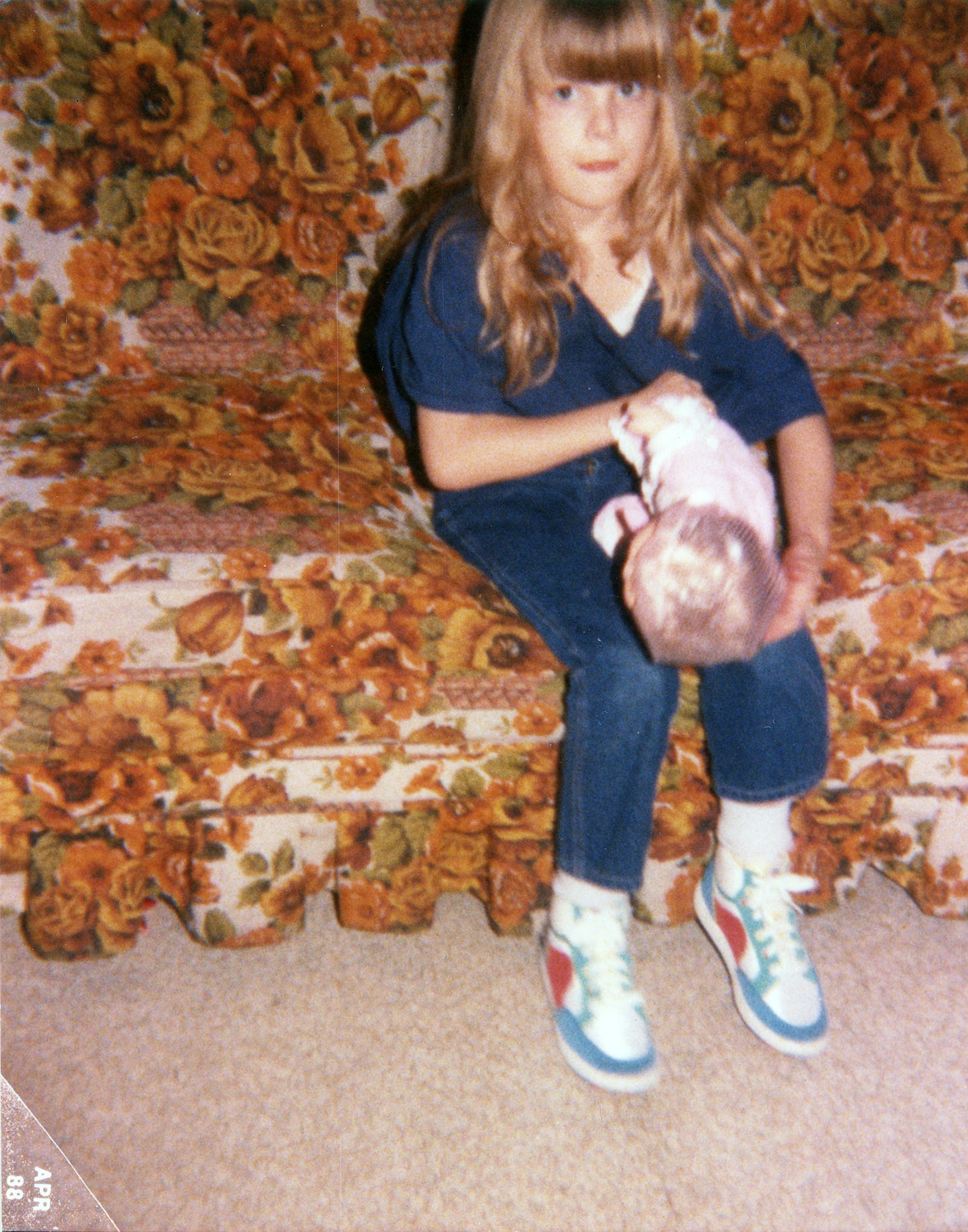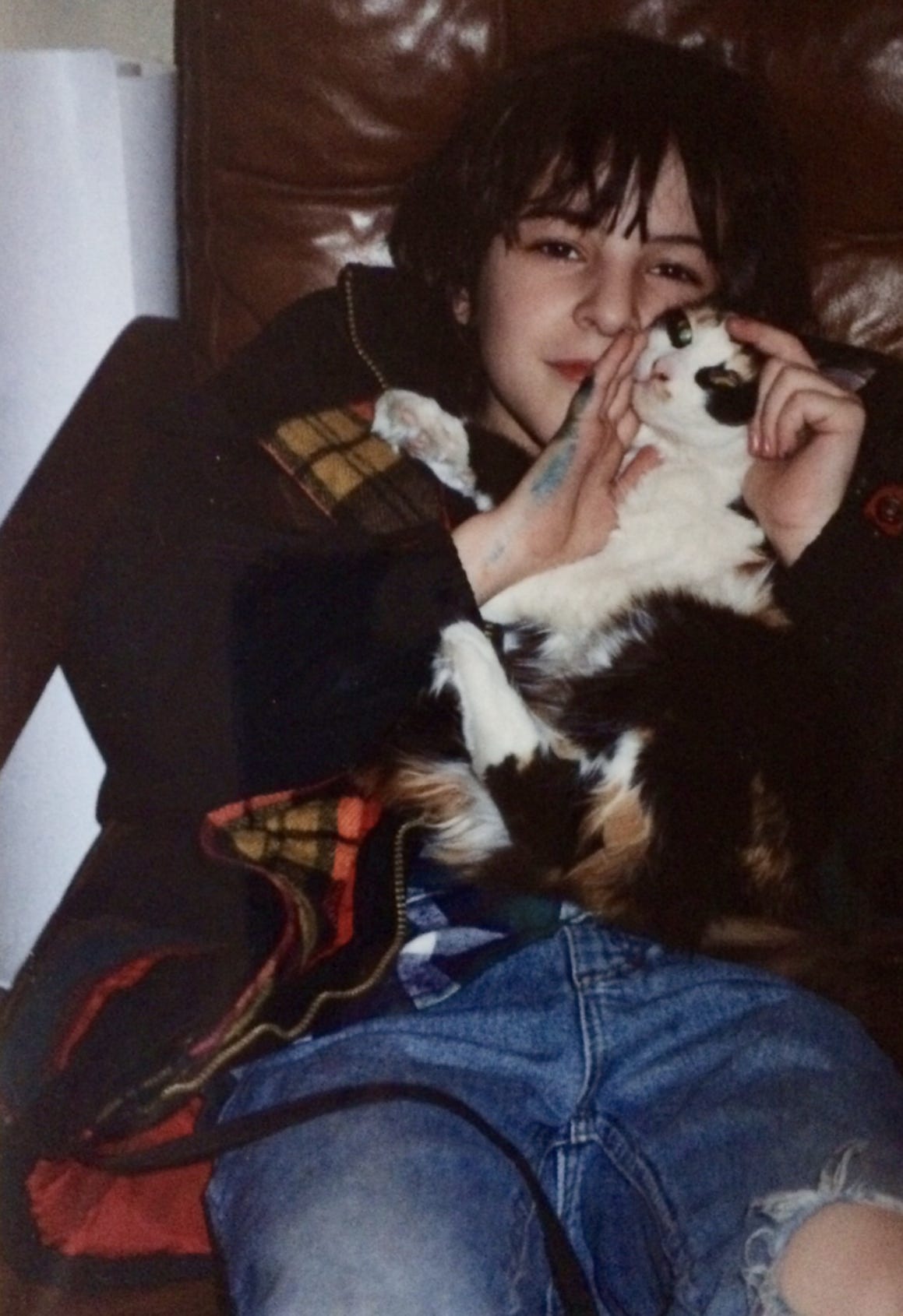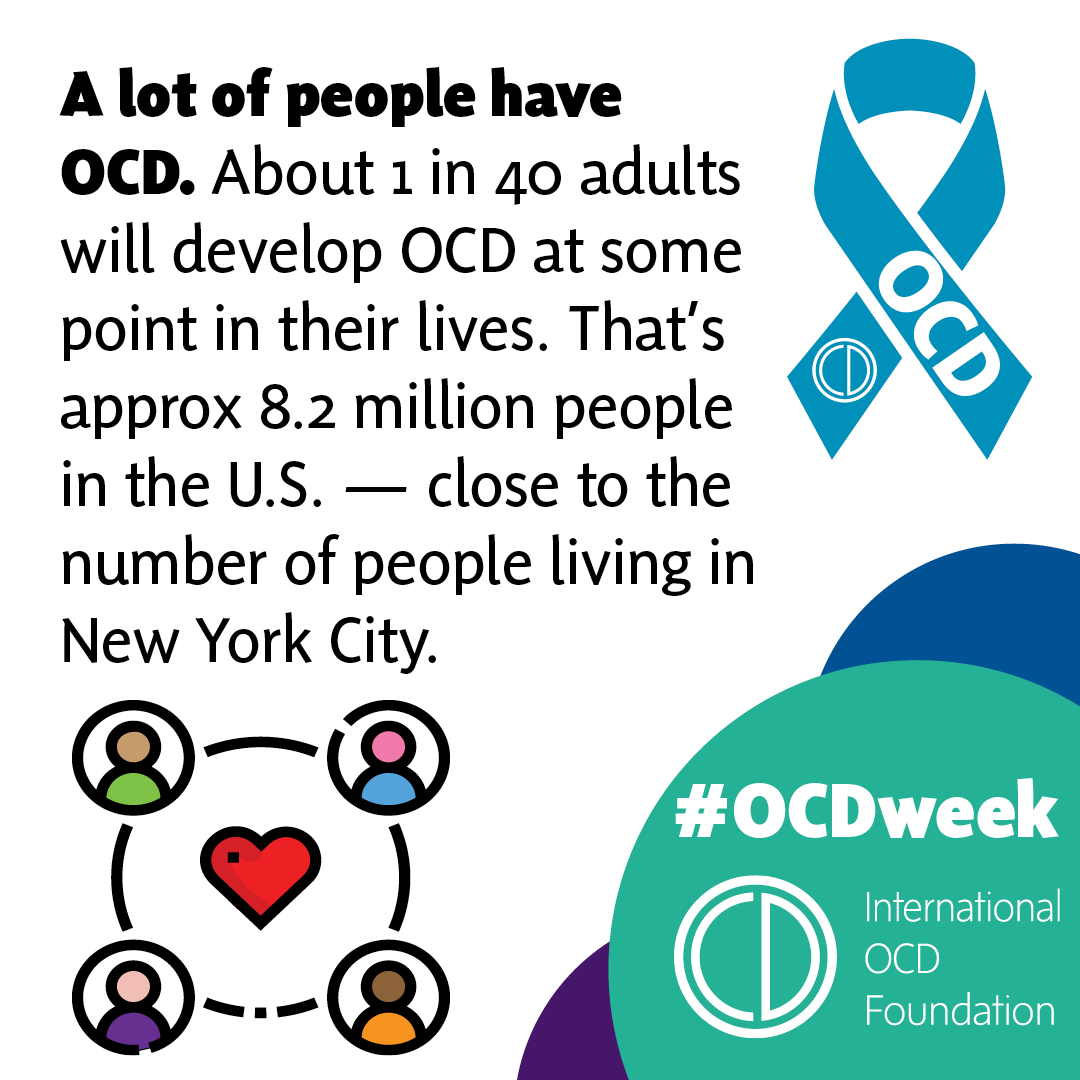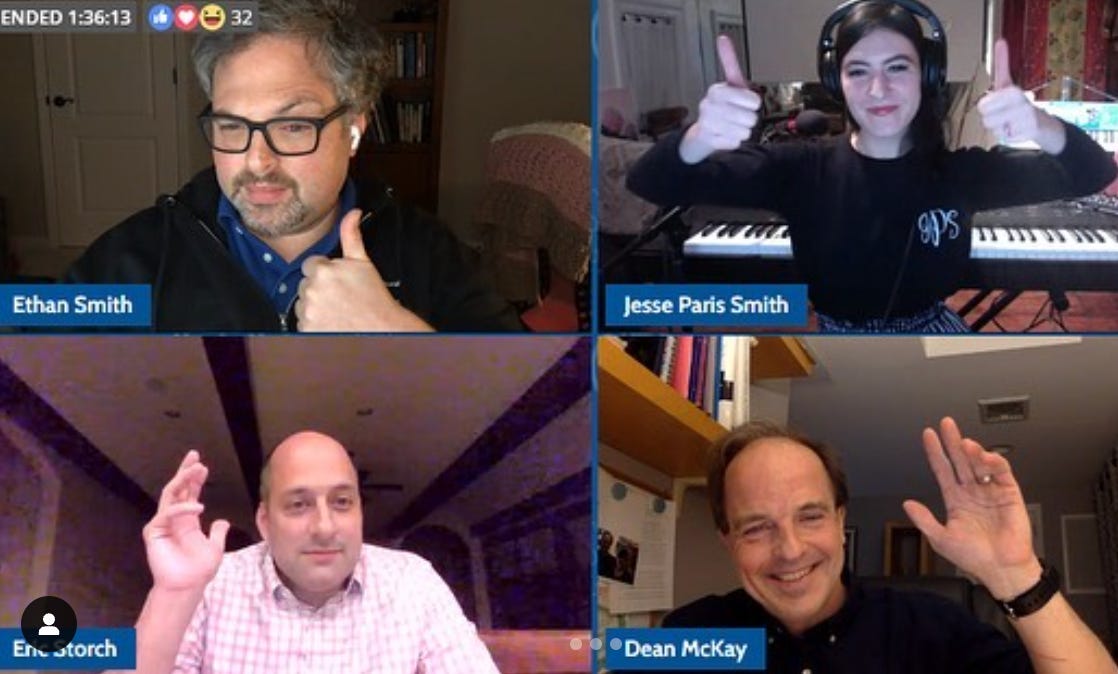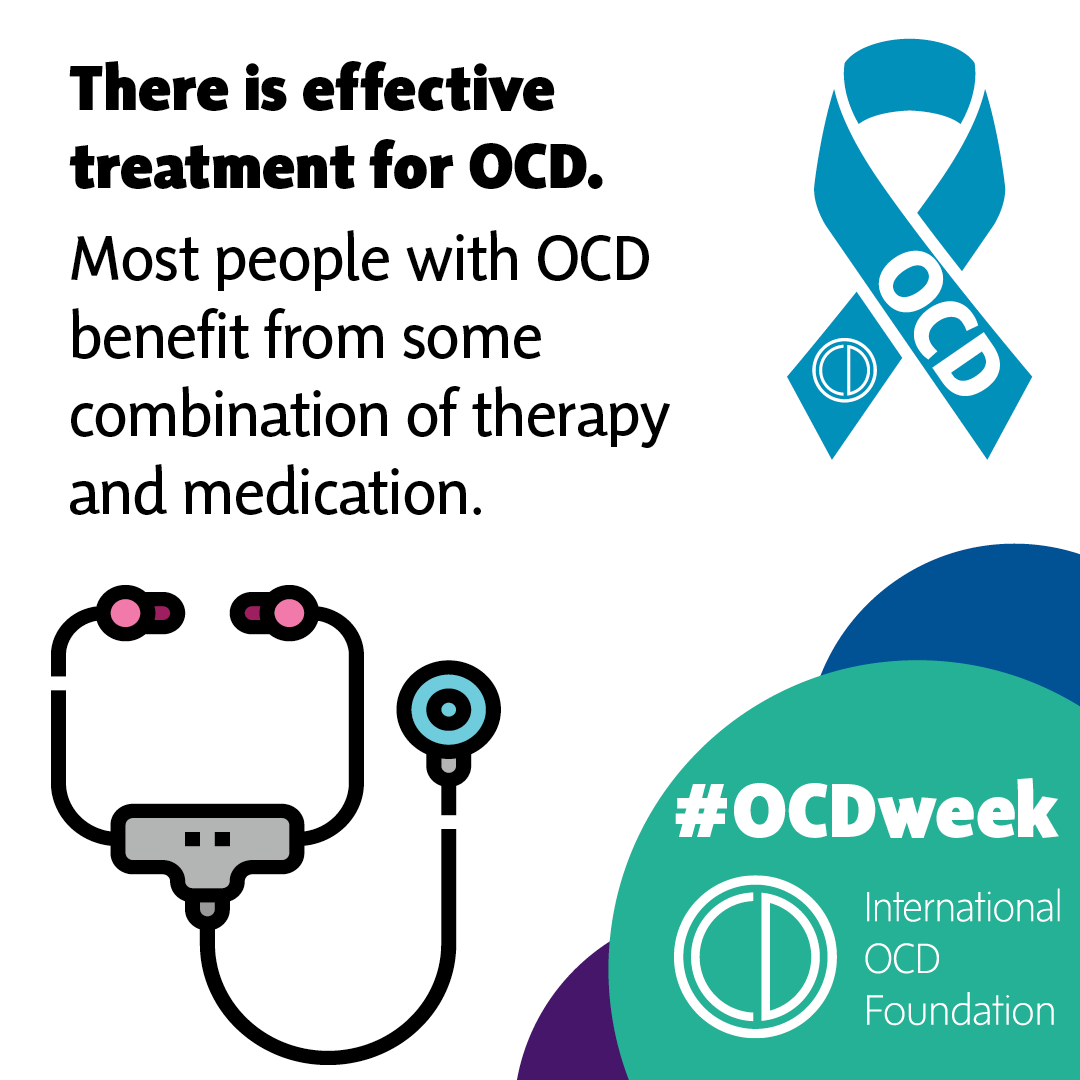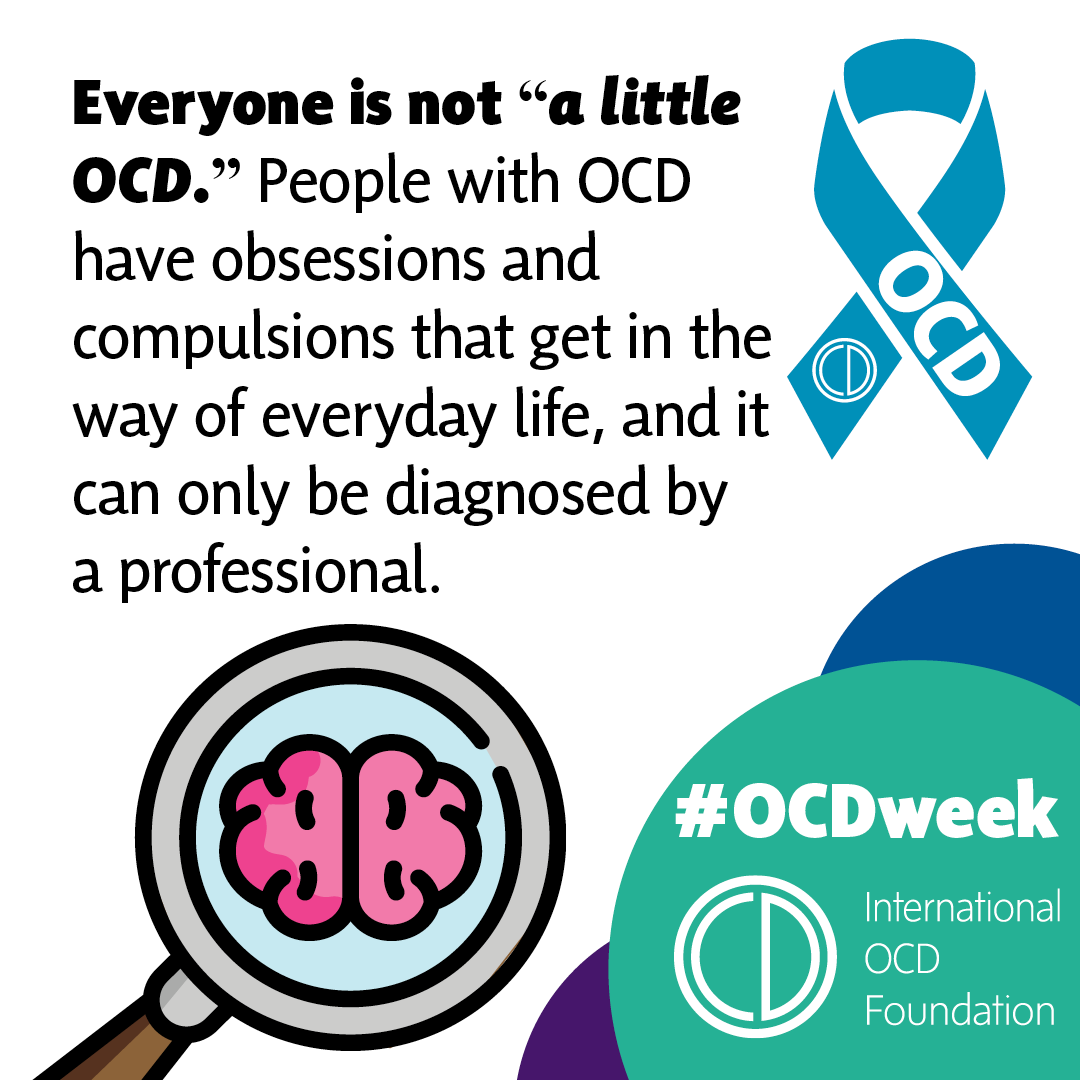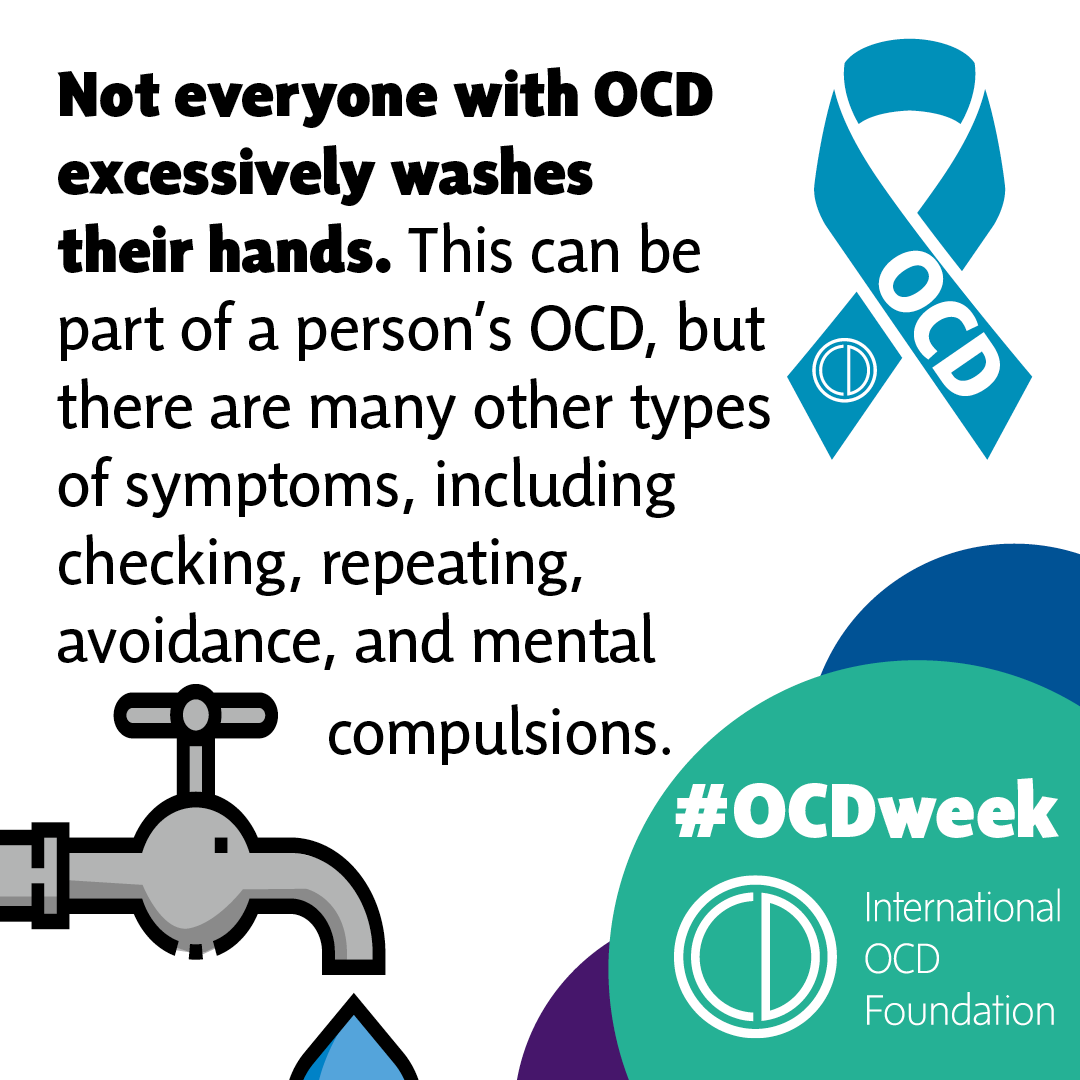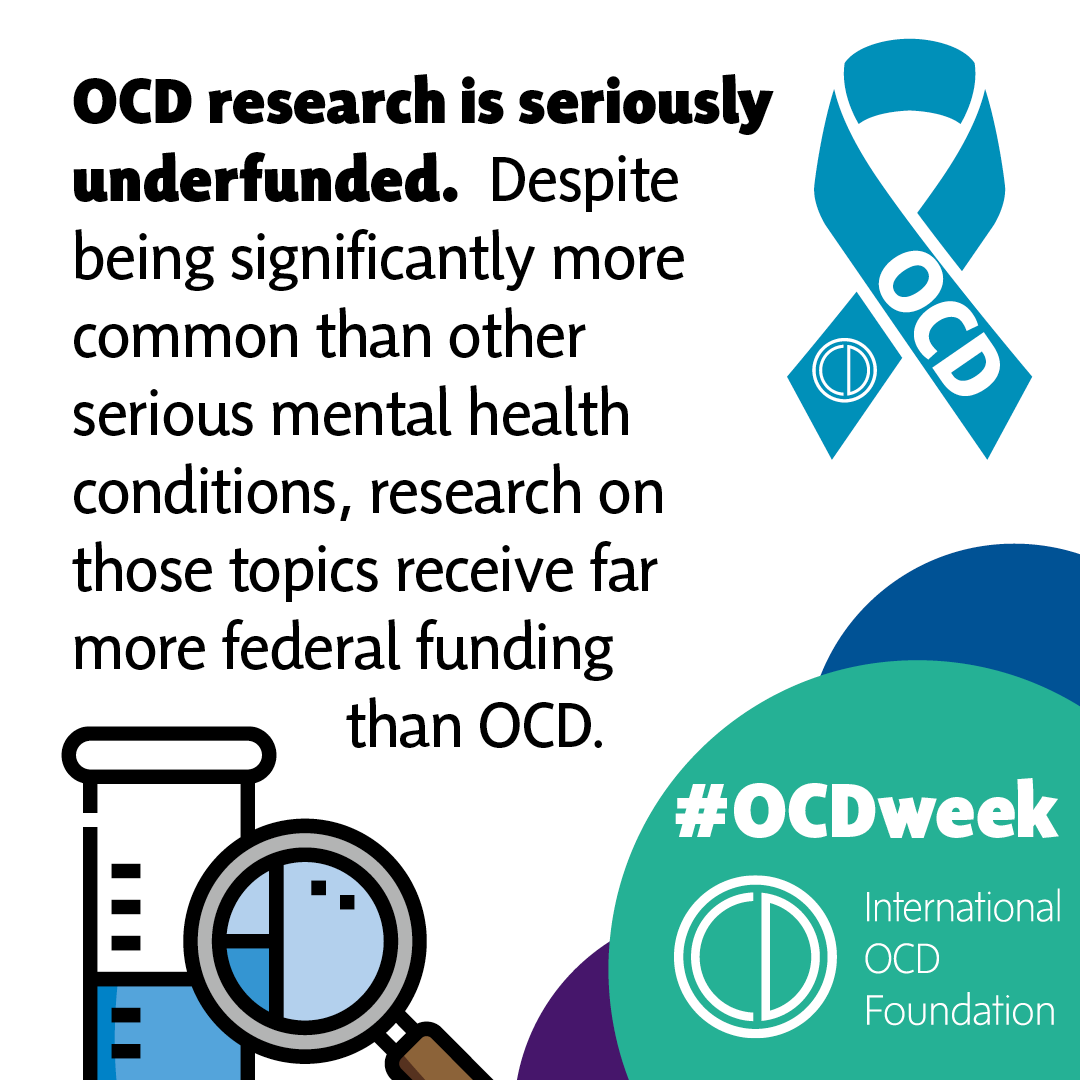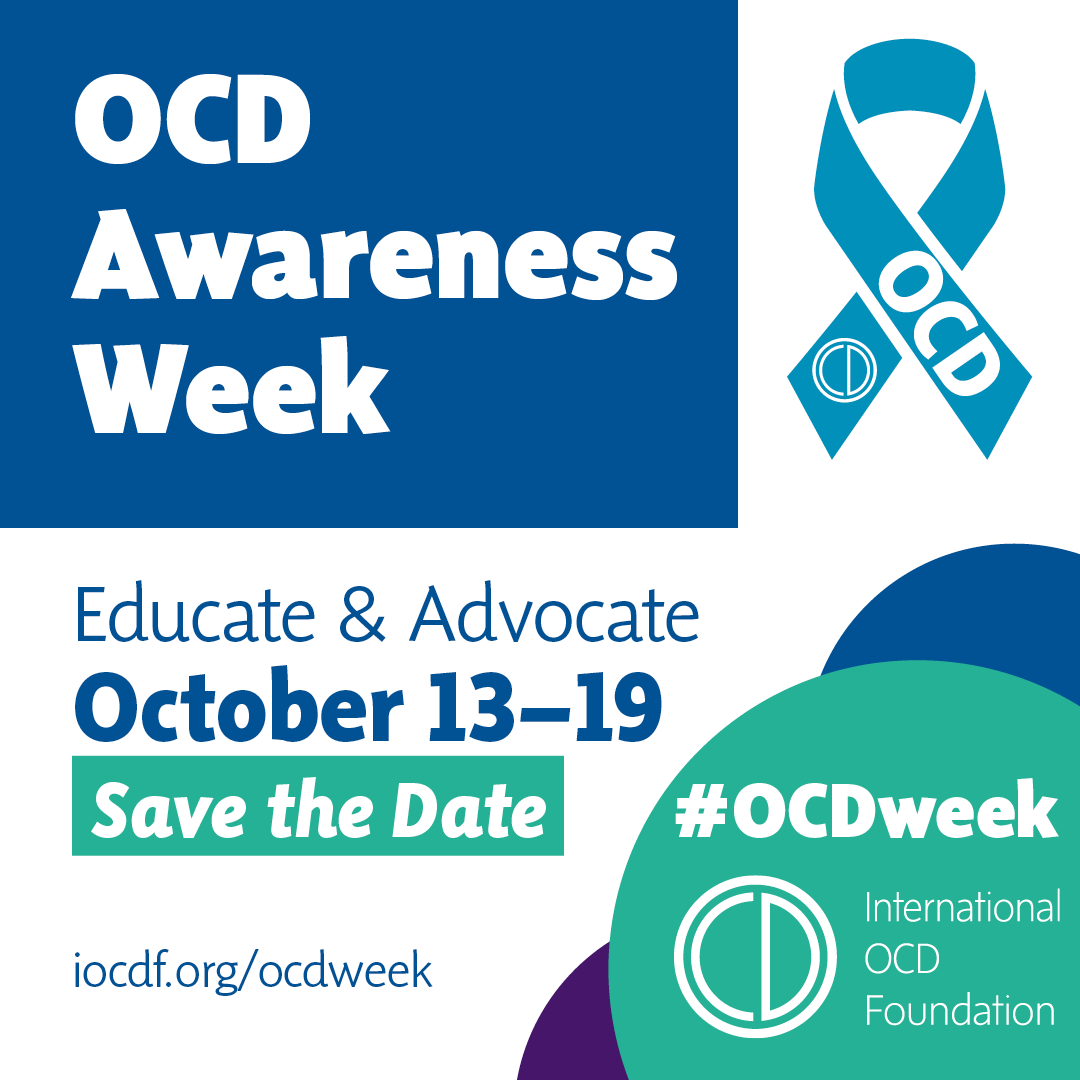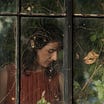This week is OCD Awareness Week, so I thought I’d share a little about living with OCD. So many people, including myself, go years without being diagnosed, in large part because it’s such a misunderstood mental health condition. I realized that I had OCD a few years ago, after my pal Jesse Paris Smith publicly shared her story. In an effort to spread awareness, we decided to interview each other about our experiences living with OCD.
Jesse and I first met in 2018, became fast friends, and have since collaborated on various projects connected to her nonprofit Pathway to Paris, including a recent line of merch to raise awareness and funds to save the Elizabeth Street Garden in NYC. Here’s our conversation. Feel free to comment with your own story or send us a private message if you’d rather do that. We’d love to hear from you!
Conversation from October 14, 2024:
Jesse: How old were you when OCD symptoms started to affect you?
Hillary: I was around eight when my symptoms started showing up. I had a pretty chaotic childhood and things at home started getting even more difficult around that time, so it makes sense that’s when my OCD really started to show itself. I’ve gone through different obsessions and compulsions, but at that time it was mainly worrying about people dying because of something I thought, or did, or didn’t do. I believed I had to repeat things a certain number of times, step on certain cracks in the floor, and all sorts of other things that weren’t related to anyone dying. I started worrying that someone was trying to poison me and I wouldn’t want to eat without checking my food. (Not sure exactly what I was checking for…something labeled poison in my bowl of cereal?!) I even started worrying that I would snap and kill my entire family. I didn’t tell anyone though.
I don’t remember anxiety/OCD being as much of a problem during my teen years, it was more angsty depression. But it came back in my mid twenties, in different forms than when I was a kid. And then in 2020, Covid-times really kicked it into full force and that’s when found a therapist who specialized in OCD.
H: How old were you when your OCD symptoms first started showing up?
J: I was eight when I had my first anxiety experience, a major turning point and core memory of my life, and the symptoms began showing up shortly after that - first slowly creeping in, and then like a secret avalanche they were all consuming around ages 9-11, dissipating at age twelve.
J: When were you able to put a name to the symptoms you were having?
H: My mom noticed that something was going on, probably when I was around nine, because my hands were cracked and bleeding from me washing them so much. I didn’t do it because of germs–I don’t really remember thinking about germs as a kid–but I had convinced myself that I had to wash my hands a certain number of times or something bad would happen to someone. I can remember my mom mentioning that maybe I had OCD, but this was pre-Internet times and there just wasn’t a lot of information or conversation about mental health, so we didn’t really do anything at that point. I just tried to quit washing my hands so much.
When I was around eleven, religion became the focus for a while. I would worry about going to hell or if I didn’t pray just right someone would die. I would spend hours praying before I went to sleep. My older brother would walk by my room and be like, ‘what are you doing??’ He had no idea what was going on, but I think he told my mom something wasn’t right. I started having chest pains from anxiety around this time too and I finally told my mom that I was worrying a lot, but I didn’t get into anything specific. She took me to a therapist and I remember telling him I was worried that my thoughts would hurt someone. He had me look out of his office window and imagine that I wanted a person walking down the street to fall over. They didn’t fall over. Then he was like, ‘do you really think you have that much power over things?’ I guessed not and that helped a little for awhile, but I didn’t go back to see him again. He didn’t mention OCD and I wouldn’t know that’s what it was for many years. I got diagnosed not that long ago, at the age of 40!
H: How old were you? What led to that realization?
J: I actually didn’t know what was happening when I was little because I never told anyone what I was experiencing, and I didn’t have the knowledge or awareness of anxiety or anything surrounding mental health. When I was around 10, there was a ritual I would do in the bathroom at school, and I remember feeling mentally exhausted by the way these rituals consumed my time. I remember confusion surrounding the terrible, yucky feeling in my tummy. I came to know the sensation so closely, I knew what events led to it and tried to avoid them, but I didn’t know how to describe it and never tried to. I do remember abstractly accepting it as my new reality, imagining it was all just part of growing up, that probably everyone was going through the same thing.
OCD symptoms and general anxiety actually went away when I was about 12 or 13, stayed away through my teen years, and really sort of drifted away from my mind. When I was around 20, anxiety returned, and the symptoms along with it, though in a different way than when I was a child. I remember when I first recognized that terrible feeling in my stomach again. I had forgotten how awful it was, and I was saddened and surprised at its return. I also recognized those familiar ritual symptoms when I started having trouble choosing items in the grocery store - two identical items and a feeling of paralysis over deciding which one to purchase. This became a recurring issue, not wanting to make the wrong decision and have something bad (and completely unrelated) happen as a result. A friend at the time who witnessed these actions patiently suggested that choosing one or the other option in the store would lead to the same outcome, that there wasn’t anything unsafe going on, and that this decision was minor and certainly not the catalyst for something greater or anything dangerous. This was the first time I ever expressed these thoughts or actions clearly to another person. Prior to that it had remained a private secret, an uncomfortable memory from my youth.
I don’t actually remember the exact chain of events, but I do remember in my mid twenties I started doing research online, reading about OCD. I remember I was completely shocked, amazed at the way I related so specifically to the experiences being described. Finally, I had clarity, it all made sense. It was a huge relief, validation, peace of mind. Clarity. I had never heard anyone talk about these things before, and as a child I had never told anyone what I was experiencing. This research eventually led me to find the International OCD Foundation (IOCDF) and I decided to quietly fundraise for their annual walk, 1 Million Steps 4 OCD, which takes place every year in Boston (and cities all over) where their office is based. This is how I was formally introduced to an OCD community, to real people, asking them questions and telling them face to face about my personal experience, learning from their experiences, and finally learning what I had been going through all those years.
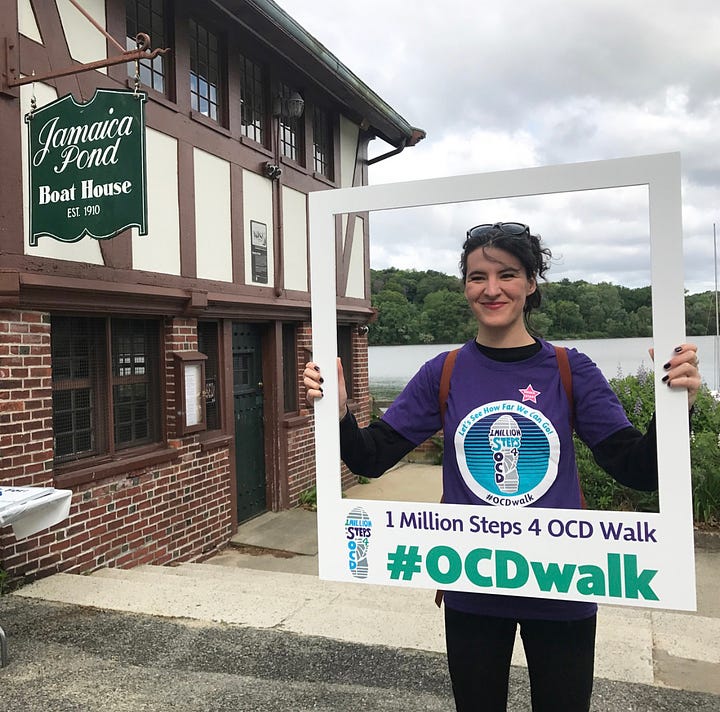
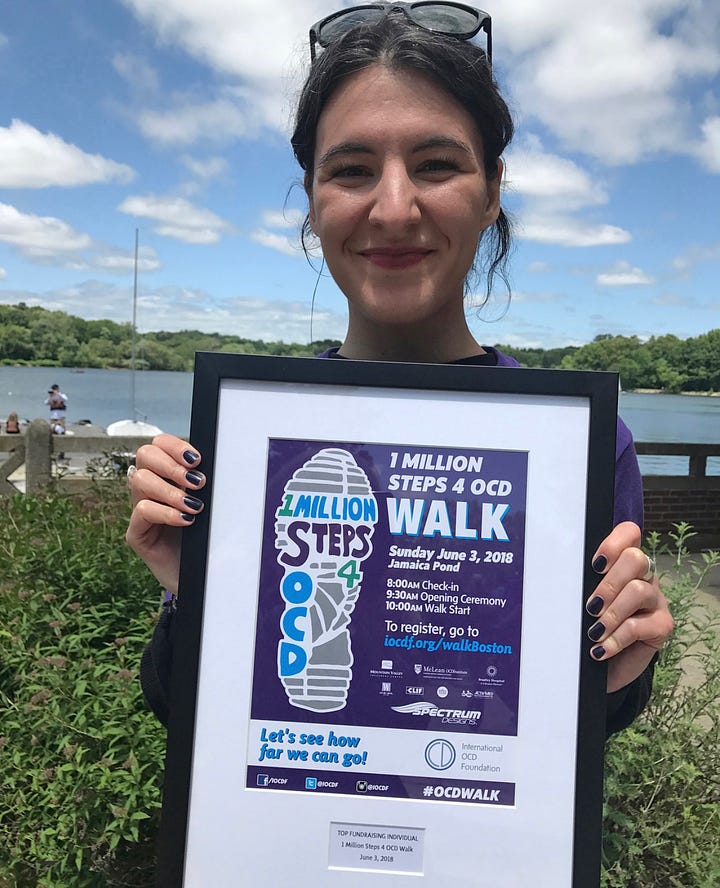
J: What is something unique you’ve learned through having OCD in your life?
H: Hmm, well I guess I don’t know what it’s like to not have it in my life, so I’m not totally sure! I think having OCD has maybe made me more empathetic than I might be without it. I can sometimes get stuck worrying about other people and how they’re feeling, like probably beyond a healthy level of concern. But, it’s something I’m working on, along with all the other things!
H: Have your OCD symptoms changed as you got older? And do they ever subside completely for you?
J: When I was a child (8-12) the compulsions existed in the form of repeating and counting (washing hands and light switches), touching, and different rituals to feel a ‘just right’ sensation. The obsessive thought or fear was based on safety, more specifically getting murdered or robbed, someone breaking into the house, something happening to me while I was sleeping or had my eyes closed. When I was around 12 or 13, the symptoms went away completely, returning in a different form when I was around 20. At that time they were less frequent, and more surrounding anxious thoughts concerned with personal relationships. A few small rituals appeared, with the purpose of clearing unwanted/intrusive thoughts and uncomfortable ideas/images. I still struggle sometimes with anxious thoughts/feelings focused on personal relationships and communication, and other related experiences like Misophonia. During Covid I was part of a ‘Misophonia Town Hall,’ where we addressed the details of this experience as well as some myths/misinformation attached to it.
J: How has OCD affected your life in a way that people might not expect?
H: One of the most challenging things for me (and something people might not realize that OCD affects) is my job. I own a small business and every day is filled with making so many decisions. It’s never ending and OCD can make it incredibly challenging to make a decision, stick with it, and move forward. A lot of the time people think someone with OCD is super organized and on top of things. I’m fairly organized, but sometimes I can just go into complete avoidance mode and procrastinate because I don’t feel like I’m ready to make the “right” decision or I’ve convinced myself I can’t handle every outcome I’ve thought of. Every day running a small business presents challenges to figure out. Wait, I take that back. I’m going to say it how my therapist would say it. Haha. Every day presents me opportunities to practice the skills I’ve learned in therapy!
H: Do you think OCD affects your creativity or your creative process?
J: I don’t think this is related to OCD, but I do want to share what this question makes me think of because it is related to mental anguish and keeping ourselves ‘stuck.’ When it comes to publicly shared creative work, one of the things that can sometimes be a bit of a challenge is my tendency to overthink, getting trapped in cycles of ‘analysis paralysis,’ struggling to make a decision, finding it hard sometimes to move forward with an idea once I get stuck in that indecisive place. I don’t think it's related to OCD, but it’s definitely obsessive thinking that is a hurdle to get over. I say it’s not OCD because it’s not tied to a fear or anxiety and there is no compulsion involved. It’s more like a desire to know that something is the ‘right’ decision before moving forward with it. There is definitely that fear around choosing the ‘wrong’ decision, and the path of life that would lead me towards, and this is the prison of analysis paralysis, hence the word paralysis. It leaves you stuck until you can break your own gate down and cross the moat. I also suffer a bit from ‘imposter syndrome,’ feeling sometimes that I’m not good enough or ready enough to go down a new path in life, which leads to feeling a need to study more, learn more, prepare more. Endless preparation before taking action, again, this need to ‘know’ that everything will work out great. It’s strange because none of this aligns with my own values or beliefs, and intellectually I don’t prescribe to it, but those are the places where I can get stuck sometimes with moving forward on something creatively, no matter how badly I want to, no matter how much I believe in something. A career coach I worked with would use this phrase with me, ‘your pencil is sharp enough!’ This really has been something I try to remind myself of as often as possible. She was also the one who opened my eyes to ‘analysis paralysis,’ and for both of those lessons, I am very grateful to her. Another important mentor told me, ‘just pick something! And if you don’t like it, change your mind, but you’ll never know which way to go unless you start somewhere.’ This advice is also incredibly valuable. Sometimes we keep ourselves from the place where we’re meant to arrive because parts of the journey scare us so much. Okay, I’ve veered off track!! - back to the original question, it’s a big and complex question, definitely interesting and worth exploring more.
Other than all that, I think creativity is actually more so than anything has really been a place to find comfort, to express difficult emotions and experiences, to move out of the headspace and into the heart space, into the body, a place to rest and release energy. I am so forever grateful for the mediums of writing and music, as well as others. It’s part of the reason I think anxiety lifted so much from me when I was a teenager, because that’s when I discovered all of those things and leaned into them heavily. Music and writing have been incredibly healing for me throughout my life, times when my mind can turn off, and I can just be.
H: I think the indecision thing IS part of OCD! It’s one of the biggest things that I work on in therapy. I had no idea it was part of it, I thought I was “indecisive” just because. Apparently the not making a decision is a choice/compulsion. Who knew!
J: Oh wow, that’s so interesting. Let’s definitely talk about that more! Also, now I’m curious about your answer to the same question.
H: For as long as I can remember, I’ve spent a lot of time in my head. Growing up, there was so much happening around me, but my imagination was always a place I could get away for awhile. I could dream up all sorts of things, sometimes on my own, other times with my older brother. We’d make up entire worlds outside and stories that we added on to for weeks. I’m not sure if I have a big imagination because of OCD or if OCD is just the thing that hijacks it sometimes and then I imagine all sorts of bad things and worst case scenarios. Either way—when I can get ahold of it and channel my imagination into positive, creative things—that’s when I feel the happiest.
H: What causes flare ups for you with your OCD symptoms? What has been one of the hardest compulsions to break?
J: Compulsions themselves have actually become infrequent, minor, and momentary (having trouble choosing identical items in the grocery store, picking out which sock goes on which foot, which street to walk down when there are two equal options), and at this point I am able to tell myself, ‘it’s okay, just pick something, it has nothing to do with anything, nothing bad will happen because of it’ and move on quickly. For me the struggle is more about cycles of thinking, catastrophizing, the fear of doing something wrong, or ‘ruining’ a situation, getting stuck for a moment in that headspace that leaves me feeling nauseous, creating my own anxiety from nowhere. Fearing a bad feeling and creating it because of imagining it. It’s about actually wanting everything to feel ‘just right,’ not wanting to upset the balance or lead to anything that could harm an otherwise perfect or wonderful experience. To feel safe, to avoid feeling unsafe. Anything to avoid added discomfort.
J: Did you feel supported early on when OCD arrived in your life? Do you feel supported now?
H: I think early on it wasn’t really possible for people to support me with it because no one, including myself, knew much about it. Also, I kept it all to myself, so unless I was doing outwardly noticeable compulsions, no one knew anything was going on. I feel very supported now. I’m lucky to have an amazing therapist who specializes in OCD. I wish everyone everywhere had affordable access to good therapists. (Free would be even better!) I’m also very lucky that my husband is beyond supportive and has even gone as far as doing his own research to find out the best way to support me. Cause it’s not always a picnic living with someone with OCD! Just knowing that I can talk to him about anything has been a huge help. I’ve also opened up to other people in my life about it, which I hadn’t really done much of before. My friends are supportive, but don’t make a big deal out of it, which is what I was hoping for. It’s not something I want to talk about all the time, but it’s nice to know that when I do, there are people there to listen.
H: What has been frustrating for you about how others understand OCD?
J: For me, I get upset about the general myths/misinformation that have permeated throughout, due in part to culture (tv shows, movies, general conversation) and are passed down to new generations due to a lack of awareness. It bothers me that OCD is still used as an adjective so casually in our regular vernacular. OCD is not an adjective, and it certainly is not a way to describe someone who is simply concerned with tidiness, organization, hygiene, or health. OCD is not something pleasant and helpful, or even an exaggerated personality trait. OCD is a real disorder that can deeply (and sometimes tragically) affect peoples’ lives. It can be unbelievably lonely and debilitating. It is highly complex. It also makes me sad that there is still so much stigma around it, that simply talking about it can be an uncomfortable conversation because there is so much misinformation surrounding it. It’s not only used as an adjective, but used as a joke. A person suffering from OCD is already dealing with so much, it’s so sad they also need to manage this uncomfortable terrain of talking about it, which can lead to added isolation and shame.
J: What do you wish people knew about OCD?
H: The main thing is I wish the symptoms were more common knowledge. Having OCD doesn’t just mean you like things clean and organized. That’s one subtype of OCD, but there are many, many others. I don’t think most people realize all of the mental obsessions and compulsions that can come along with it. And just how debilitating and completely exhausting it can be. If OCD were more commonly understood, maybe people would likely get diagnosed earlier. I don’t want to think too much about all the time I’ve wasted over the years, doing pointless rituals for no real reason, because that would just be depressing to calculate. But I know it’s been too much time and I don’t want other people to go as long as I did without knowing what’s going on with their brain.
H: What resources have been helpful for you?
J: The IOCDF website and all of its resources have been incredible. I really love the Annual Conference and my first time attending in 2018 was completely life changing, hearing peoples’ real stories, attending presentations, workshops, and support groups.
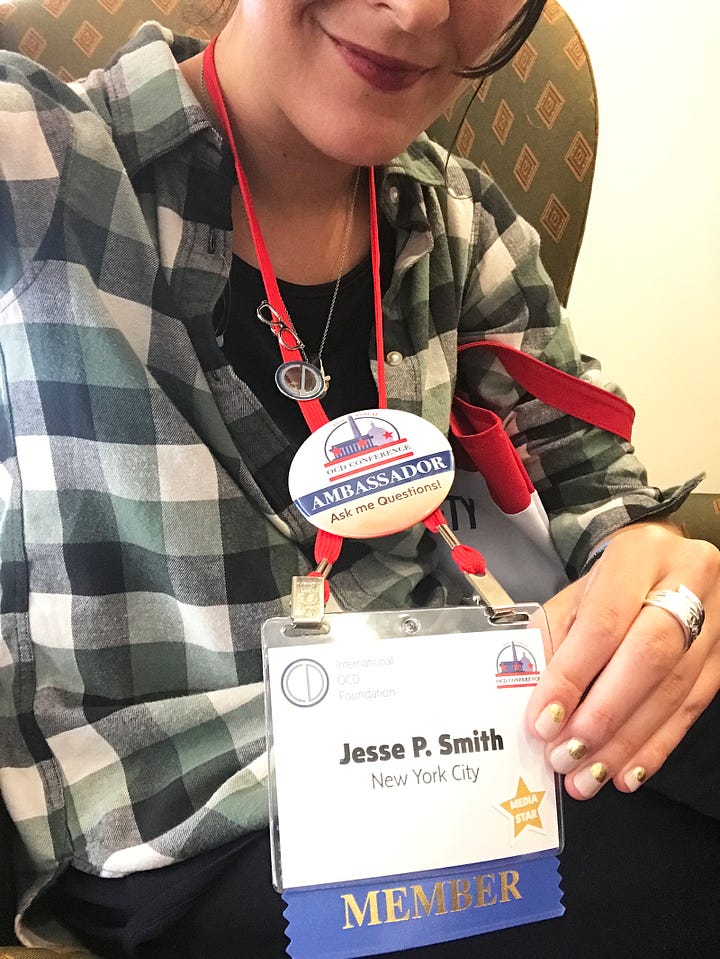
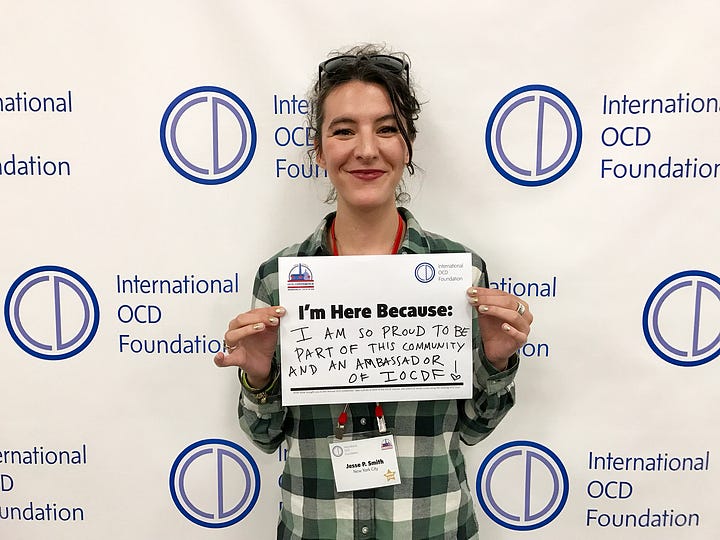
There are a lot of books that I like, though my favorite online resource is this wonderful page called ‘A Penny For Your Intrusive Thoughts,’ where anyone anywhere can anonymously share their intrusive thoughts through a google form. The submissions are then grouped into different categories over time, designed into beautiful graphics, and shared periodically by topic on their site and Instagram grid. There is something so incredibly comforting and validating about this. I have submitted my own a few times, and not only is seeing them there on the page so healing, but the comments people leave just - I don’t even have words for it. These are thoughts that we experience in such aloneness, not realizing there are people all over the world going through a similar experience. Sharing in this way, seeing your words there, reading the comments, you truly realize you are not alone. It’s a way to remain anonymous in your journey while feeling understood and supported in a unique and beautiful way. The platform they’ve created is truly such a gift to the community.
I also really love Unstuck, a film made by my friend Chris Baier and his two daughters, as well as other young people sharing their OCD experiences in their own voices, with their own words. This movie is informative and comforting for anyone experiencing OCD symptoms, who has a friend, family member, or child going through it, or simply wants to learn more:
J: Do you have a favorite OCD resource online that people can look to for more information?
H: I think the most helpful one for me has been the IOCDF website because that’s what I was looking at when it first really clicked that maybe OCD was what I’d been dealing with for most of my life. And it was you who had told me about it, Jesse! You had mentioned being an ambassador for IOCDF and I had that faint memory of my mom saying maybe I had OCD, so I thought I’d take a look at their website. I started reading and I was stunned. I felt simultaneously freaked out and excited. Everything that I’d thought was just some weird thing that my brain was doing and that no one would understand, was actually part of this condition that other people had too. Turns out I really didn’t know anything much about OCD. I had never heard the term “intrusive thought” and reading about that and other common things people with OCD deal with was really life changing for me. There are lots of other resources I’ve found helpful since then. NOCD, Jenna Overbaugh’s website and podcast, and Kimberly Quinlan’s podcast are a few online things I’ve found helpful.
H: Do you have any tips or encouraging words for others with OCD?
J: In times of struggle, anxiety, OCD, and related disorders can lead us to thinking that every small action or decision could potentially prevent or lead us to the thing we fear the most, whatever that may be. That’s a lot of pressure on ourselves. The feeling is so strong and makes it hard to differentiate between what’s real and what’s not, what is intuition/instinct and what is OCD/anxiety. This can all be so confusing when we’re trying to get to know ourselves. It’s hard to develop self trust in those situations and it's easy for fear and shame to grow within us. It can feel like we are continuously led astray by our own actions and decisions. We can reclaim our actions and decisions though, as they are also what it takes to find support, resiliency, and advocate for a better future. It’s all a bit messy, but the more we understand ourselves, the more we can help ourselves. The more we cultivate kindness and patience with ourselves and each other, the better our lives can be. Education/awareness and compassion really are everything - they are actions of love.
So tell someone, talk to someone, find people, and don’t be afraid to share. You are super unique and your story is important - having the courage to share your story with others is such an important step in finding support, finding community, and will also help others who are feeling alone and struggling. Sharing your story will also help to end the stigma around the conversation of OCD and dispel these myths and misinformation once and for all. It can be a long and bumpy path from struggling to sharing, though once we’re able to get there, community advocacy is a very healing and rewarding part of the journey.
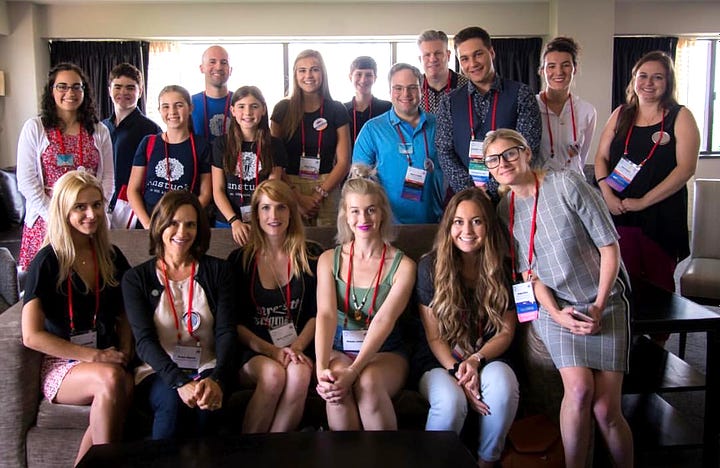
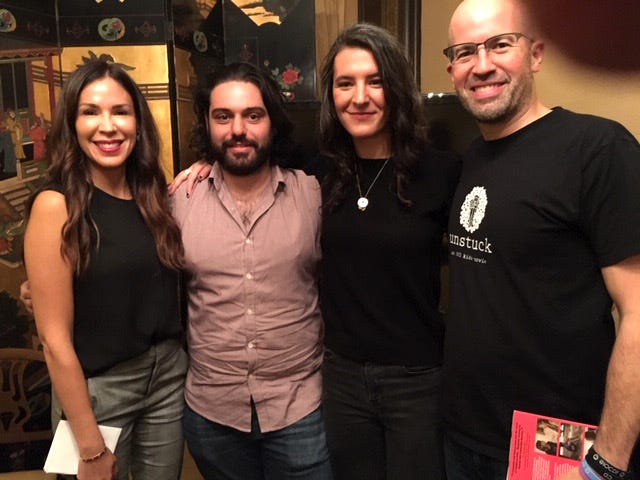
J: For anyone out there who is struggling/suffering right now, what are some words of support you would like to share with them?
H: Human brains are wild. Mine. Yours. All of em. You’re not alone. There are hard things, but you can handle them. There are lots of good things too!
THANKS FOR READING!
HERE ARE RESOURCES IF YOU’D LIKE TO LEARN MORE:
Annual OCD Walk - Register for a walk happening now!
Conferences
*30th Annual Conference in Chicago July 10-13, Stay tuned for more info!
Virtual OCD Conference November 23-24
Jenna Overbaugh’s podcast + website
A Penny For Your Intrusive Thoughts
More about Jesse:
Jesse Paris Smith is a writer, musician, and composer based in New York City. She was born in Michigan and moved with her family to Manhattan just before turning 9 years old. Since 2013 she has studied and trained professionally in the areas of therapeutic music, wellness coaching, grief support, and death education. She is a certified Grief Support Coach and works seasonally as a Moderator for Creative Grief Studio. She is a passionate advocate for mental health awareness, particularly in the areas of grief, anxiety, OCD, and performance wellness for musicians and performers alike. She is also co-founder of Pathway to Paris, a non-profit organization focused on helping cities transition to 100% renewable energy as soon as possible to meet and go beyond the goals outlined in the Paris Agreement.
More about Hillary:
Hillary Harrison is a writer, artist, and co-owner of Kin Ship Goods, based in Charleston, West Virginia. She grew up in a small town in WV and moved to Louisville, Kentucky where she majored in photography, found her people, and stayed for 16 years. While there she published Bejeezus, a print magazine that began as a black and white zine, photocopied in the middle of the night at Kinkos. Bejeezus later turned into a full color, nationally distributed magazine, focusing on arts and culture in places outside of big cities. Hillary was one of the co-founders of the short-lived, but fondly remembered Butcher Block, an art gallery and DIY event space in Louisville’s Butchertown neighborhood. And later on co-founded the Kin Ship Gallery. This evolved into Kin Ship Goods—an independent brand dedicated to making life a little cozier for everyone.


